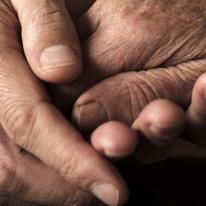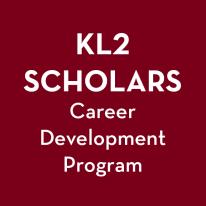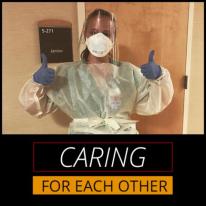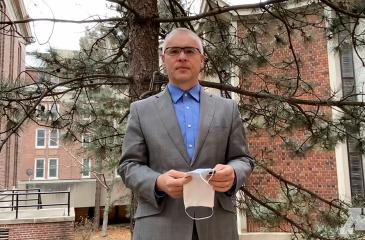What a year it has been. Our work together has helped alter the course of the pandemic in this state. We have demonstrated how quickly we can adapt, reconfigure, and reprioritize to meet the needs of our communities. The response across the health sciences in education, research, and clinical care has been phenomenal.
Here’s a look at some of the Office of Academic Clinical Affairs’ major initiatives from 2020:
COVID-19 Response
- Funded 75 Collaborative Outcomes: Visionary Innovation & Discovery (CO:VID) grants for small-scale research projects leading to new knowledge of COVID-19 and solving the pandemic’s unique supply chain and medical supplies challenges, including the development of the low-cost ventilator, “Coventor,” and its open source release to the world.
- Established the National Resource Center for Refugees, Immigrants, and Migrants that focuses on COVID-19 prevention, control and mitigation.
Improving Health Equity
- Interprofessional Mobile Health Initiative created in June to address health care disparities and resulting poor health outcomes occurring in communities with inadequate access to care.
- Minnesota Mobile Resuscitation Consortium (MMRC) was 100% effective in cannulation for out-of-hospital sudden cardiac arrests and the MMRC SUV response team has continued to serve cardiac arrest patients and expand the number of centers where cannulation services are provided.
- Rural Health Initiative launched to bring together University of Minnesota and communities to advance health, and improve outcomes in rural Minnesota.
Clinical Education and Training & Interprofessional Collaboration
- Masonic Institute for the Developing Brain established to bring together University experts in developmental brain research and child health to understand, prevent, diagnose and treat neurodevelopmental disorders in early childhood and adolescence.
- Health Sciences Education Center (HSEC), one of the most comprehensive interprofessional education facilities in the country, opened to provide a unifying space for all our health sciences.
- Hands-on clinical training was adapted to remote learning, enabling our learners to remain engaged and move forward in their education.
- Awarded second round BOLD Ideas grants to create interdisciplinary collaborations tackling complex issues affecting community and individual health.
The New Year will bring new opportunities to further the University’s clinical mission together. I wish you good health and look forward to the day we can be together again.
Thank you,
Jakub Tolar, MD, PhD
Vice President for Clinical Affairs

Disparities in COVID Response Task Force
The Disparities in COVID Response Task Force is a collaboration with the University of Minnesota system across Minnesota health departments, local and regional health care systems and communities to increase COVID testing in diverse communities and reduce disparity gaps by coordinating and disseminating resources on testing, mobile care and immunization events.

Simulation and Interpreting Partnership: Improving Health Outcomes for Newly Arriving Refugees
Through a recently funded five-year grant from the Center for Disease Control and Prevention, M Simulation will support the Minnesota Department of Health Refugee Health Program as it transitions to become a Center of Excellence in Newcomer Health. M Simulation will help develop online, simulation-based communication training activities designed to teach advanced skills for discussing health screening recommendations, results, and management with newcomers with limited English proficiency.

Preparing to Care for an Aging Population: Interprofessional Geriatric Case Competition Highlights Interdisciplinary, Collaborative Care and Training The Office of Academic Clinical Affairs partners with the Minnesota Northstar Geriatrics Workforce Enhancement Program (MN Northstar GWEP) to aid in the training of geriatrics team care, and the collaboration across the University to advance aging science. MN Northstar GWEP recently concluded its inaugural Annual Inter-GWEP Interprofessional Geriatric Case Competition, designed to address the competencies for interprofessional teams to care for aging patients.

Top 10 OACA Stories
2020 has been an extraordinary year. We have seen incredible challenges, a global community coming together, and so many notable strides to make the world a better place. Here are our top 10 most-read stories from the Office of Academic Clinical Affairs in 2020.

KL2 Scholars Career Development Program Clinical and Translational Science Institute’s KL2 Scholars Career Development Program is designed to develop the next generation of clinical investigators through a structured training program with a mentored, multidisciplinary clinical research emphasis. This three-year program aims to place junior investigators on the path to be competitive for NIH independent K- or R- awards. Applications from underrepresented populations are strongly encouraged. LOIs due Jan 21.

Caring for Each Other “There are so many unanswered questions, and everyone is living in a world where the unknowns outnumber the guarantees. This pandemic has changed the way I view my life and how much I took for granted the things that I am thankful for. I hope that things get better and go back to normal, but I also hope we all continue to remember what we have and what we are thankful for.” - Anya Butzer, registered nurse, UMN alumni.



